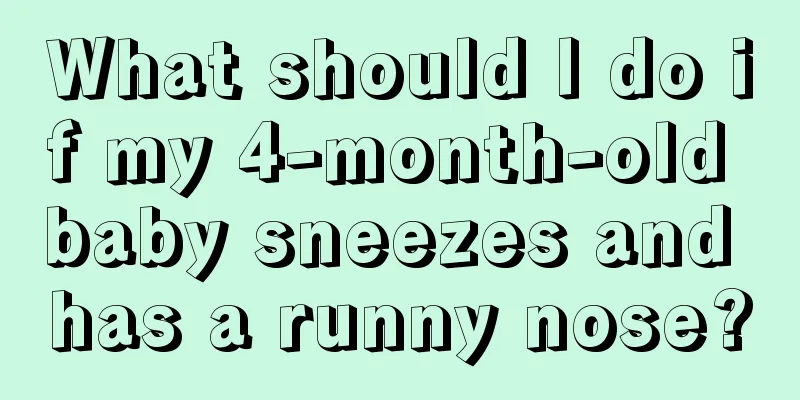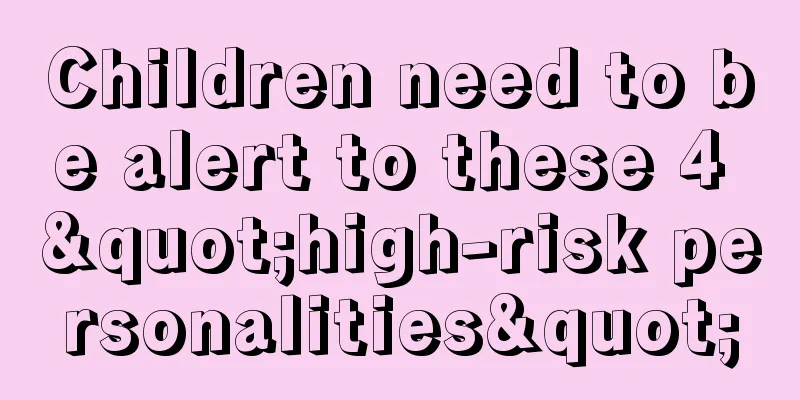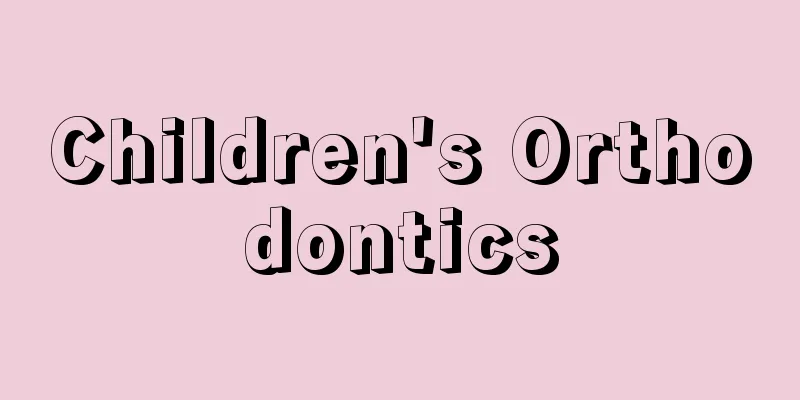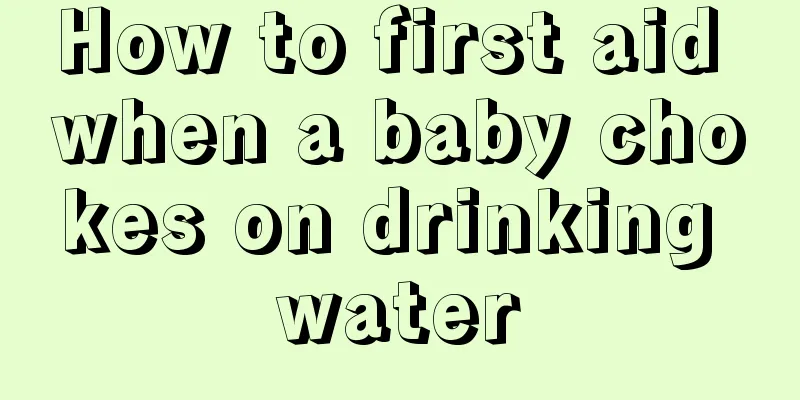What should I do if my 4-month-old baby sneezes and has a runny nose?

|
People nowadays marry late and most of them are only children, so they treasure their children very much. They are really worried that they will melt if they hold them in their mouths, or break if they hold them in their hands. However, babies will always have minor illnesses as they grow up, and parents will become extremely worried at this time. Recently, someone was worried that his baby was four months old and kept sneezing and having a runny nose. What should he do? Today we will tell you about the treatment methods for sneezing and runny nose in 4-month-old babies. Let us first understand what sneezing and runny nose are like. It is common for children to catch 5 to 6 colds a year. Typical symptoms of a cold include: runny nose, blocked nose, cough, sore throat, tiredness, loss of appetite, and fever. When babies under one year old catch a cold, they often experience fever (body temperature over 38°C), cough, red eyes, sore throat, and runny nose. Babies with a cold often have a decreased appetite. Babies under 6 months old often have difficulty feeding and breathing because they cannot breathe with a completely blocked nose. Duration of the cold Generally, a cold will last for 7 to 10 days, and in babies it may last for about 2 weeks. The cough is often the last symptom to go away and it often lasts for several weeks. Young children who often play with older children usually catch 6 to 10 colds a year; they may even have a runny nose all winter. When to see a doctor For older babies, you should take them to the hospital immediately if any of the following occurs: The cold lasts for more than 5 days; the body temperature exceeds 39°C; the baby has ear pain; difficulty breathing; persistent cough; and constant yellow-green, sticky nasal discharge. Caring for a baby with a cold 1. Get enough rest For colds, good rest is crucial. Try to let your child sleep more, reduce outdoor activities appropriately, and don't let your baby get tired. 2. Take good care of your baby’s diet Let your baby drink more water. Sufficient water can make the nasal secretions thinner and easier to clean. Let your baby eat more fruits and juices rich in vitamin C. It is said that chicken soup can relieve the symptoms of colds, so you might as well make some chicken soup for your baby to drink. Try to limit your intake of dairy products, which can increase mucus production. For babies with decreased appetite, mothers should prepare some easily digestible foods that are good in color, aroma and taste. 3. Let your baby sleep more comfortably If your baby has a blocked nose, you can put one or two towels under the child's mattress and slightly elevate the head to relieve the blocked nose. Never let babies under two years old sleep directly on pillows or place pillows under mattresses, as this can easily cause suffocation or damage the cervical spine. 4. Help your baby blow his nose The baby is still too young to blow his nose by himself. The best way to help the baby breathe smoothly is to help the baby blow his nose. You can apply a little Vaseline oil in the baby's external nostrils, which can often relieve nasal congestion; if the mucus is thick, you can try using a nasal aspirator or twisting medical cotton balls into small sticks to remove the mucus in the nose; if the nasal congestion has caused difficulty in feeding, you can use saline nasal drops 15 minutes before feeding. After a while, use a nasal aspirator to suck out the saline and mucus in the nasal cavity, and the baby's nose will be unobstructed. In fact, the reason why a 4-month-old baby sneezes and has a runny nose is relatively clear. Babies will definitely catch a cold during their growth period after birth, which can be considered force majeure, so parents don't need to be too nervous. Regarding the issue of children's medication, you can go to the hospital for an outpatient consultation and take appropriate treatment methods after diagnosis by the doctor. |
<<: Why does the baby keep rubbing his eyes?
>>: What's wrong with black spots on baby's face?
Recommend
What is the cause of red bloodshot eyes in newborns?
Red blood streaks are a common eye disease in lif...
Upper respiratory tract infection in children
Respiratory tract infections are clinically divid...
Symptoms of myocardial damage in babies
Myocardial damage in children is a relatively com...
Why do children sleep less?
Babies who sleep less, especially those under thr...
Prevention of chronic rhinitis in children
Children's physical health is an issue that p...
Reasons why babies don't sleep well at night
I believe that every parent hopes that their baby...
Will baby strawberry hemangiomas disappear?
Hemangioma is a common disease in infants. Many p...
Can I take a bath if I have roseola infantum?
Roseola infantum is a common disease. Babies suff...
Why does a baby not cry when it is born?
Usually in TV dramas, when a woman is giving birt...
What is wrong with children's stomach acid? There are many reasons
Children have weak constitutions and often show s...
Babies under one month old sleep less
Generally, newborn babies spend most of their tim...
What to do if your child coughs and has yellow phlegm
Coughing is a common symptom. The occurrence of t...
What are the symptoms of variant asthma in children?
Cough is a common symptom of respiratory diseases...
Are newborn babies afraid of lights?
Nowadays, many people are often afraid of the dar...
Things to note when your 6-year-old baby changes his teeth
Many babies will change their teeth when they are...









